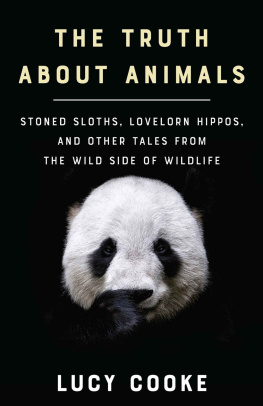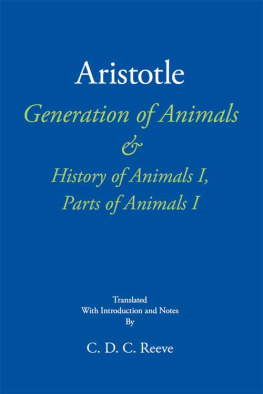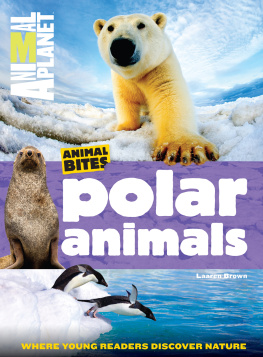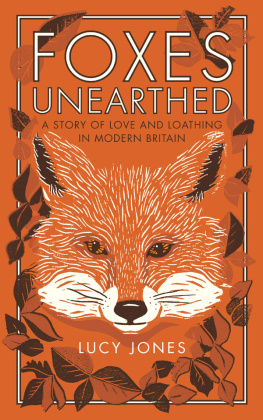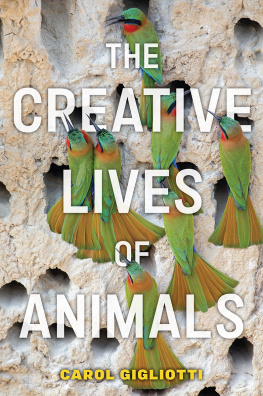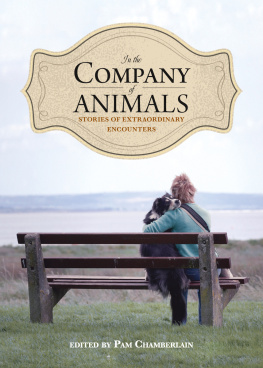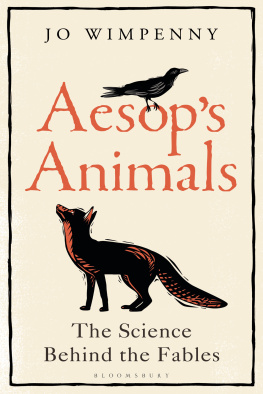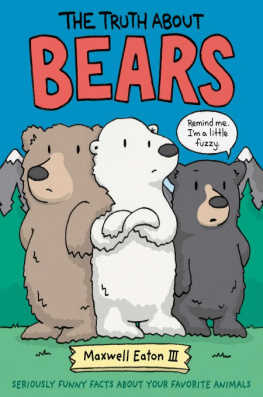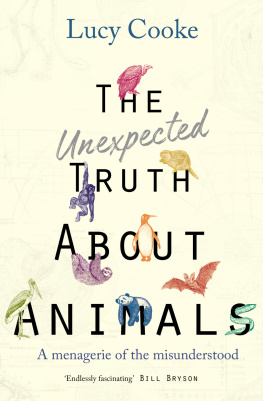About the Book
The Romans described the hippopotamus as a fire-breathing river horse that sweated blood. The fire-breathing was, of course, pure fantasy. But the sweating blood was evident in what they saw a red liquid seeping from the skin of the hippo; and what they were familiar with the ancient art of blood-letting.
History is full of these strange animal stories, invented by the brightest and most influential, from Aristotle to Disney, and they reveal as much about us as they do about the animalsthey misrepresent. We once thought that eels were born from sand, that swallows hibernated underwater, and that bears gave birth to formless lumps that were licked into shape by their mothers.
In The Unexpected Truth About Animals, zoologist Lucy Cooke unravels many such myths, revealing the fascinating facts shes uncovered while chasing hyenas, spying on tobogganing penguins and stalking drunken moose. Youll discover why sloths risk their lives to poo, how bats joined the Allies in the Second World War, and the mystery of the beavers balls.
And the hippo? It doesnt secrete blood but a sophisticated crimson gloop that functions as a sunblock, an anti-bacterial gel and possibly an insect repellent too. So it is a pharmaceutical pioneer after all.
THE UNEXPECTED
TRUTH ABOUT ANIMALS
A Menagerie of the Misunderstood
Lucy Cooke
To the memory of my Dad,
who opened my eyes to the wonders of the natural world.
HOW CAN SLOTHS exist when theyre such losers?
As a zoologist and founder of the Sloth Appreciation Society I get asked this question a lot. Sometimes losers is further defined lazy, stupid and slow being perennial favourites. And sometimes the query is paired with the rider I thought evolution was all about survival of the fittest delivered with an air of bemusement or, worse, a whiff of superior species smugness.
Each time it happens, I take a deep breath and, with as much poise as I can muster, explain that sloths are by no means losers. They are, in fact, one of natural selections quirkiest creations, and fabulously successful to boot. Skulking about the treetops barely quicker than a snail, and being covered in algae, infested with insects and defecating just once a week might not be your idea of aspirational living, but then youre not trying to survive in the highly competitive jungles of Central and South America something the sloth is very good at.
When seeking to understand animals, context is key.
The secret to sloths extraordinary endurance is their lethargic nature. They are paragons of low-energy living, with a suite of ingenious, energy-saving adaptations honed over many millennia and worthy of the most eccentric and gifted inventor. I wont launch into the full list now you can read all about the sloths innovative, upside-down life in . Suffice to say, Im a sucker for an underdog.
I love sloths. Whats not to like about an animal born with a fixed grin on its face and the desire to hug.
The reputation of the sloth was sufficiently besmirched that I felt compelled to found the Sloth Appreciation Society. (Our motto: Being fast is overrated.) I toured a talk on the unexpected truth about this much-maligned creature to festivals and schools. It traced sloth-based slander back to a clique of sixteenth-century explorers who took it upon themselves to brand this quiet vegetarian pacifist the stupidest animal that can be found in the world. This book grew out of those talks and the need to set the record straight not just for the sloth, but for other animals as well.
We have a habit of viewing the animal kingdom through the prism of our own, rather narrow, existence. The sloths arboreal lifestyle is sufficiently extraterrestrial to make it one of the worlds most misunderstood creatures, but it is by no means alone in this category. Life takes a glorious myriad alien forms, and even the simplest require complex understanding.
Evolution has played some splendid practical jokes by fashioning implausible creatures with an absence of logic and precious few clues to explain itself. Mammals like the bat that want to be birds. Birds like the penguin that want to be fish. And fish like the eel whose enigmatic lifecycle sparked a two-thousand-year search for its missing gonads, driving man to the absolute edge of endeavour a precipice eel scientists still teeter upon today. Animals do not give up their secrets easily.
Consider the ostrich. In February 1681, the brilliant British polymath Sir Thomas Browne wrote a letter to his son Edward, a physician at the royal court, requesting a rather unusual favour. Edward had come into possession of an ostrich, one of a flock donated to King Charles II by the King of Morocco. Sir Thomas, a keen naturalist, was fascinated by this big foreign bird and eager that his son send him news of its habits. Is it vigilant like a goose? Does it delight in sorrel yet recoil from bay leaves? And does it eat iron? This final query, he suggested helpfully to his son, might be best uncovered by wrapping the metal first in pastry like some sort of ferrous sausage roll since perhaps it will not take it up alone.
This zoological recipe swap had a decidedly scientific purpose. Browne wanted to test an ancient myth that ostriches were capable of digesting absolutely anything, even iron. According to one medieval German scholar, the ostrichs taste for the strong stuff was such that the birds dinner consists of a church-door key and a horse shoe. As ostriches were bestowed on the courts of Europe by the emirs and explorers of Africa, generations of enthusiastic natural philosophers encouraged the foreign fowl to consume scissors, nails and a glut of other ironmongery.
On the surface this experimentation appears to be lunacy, yet dig a little deeper and there is a (scientific) method to the madness. Ostriches cant digest iron, but they have been observed swallowing large, sharp stones. Why? The worlds biggest bird has evolved into a rather unusual grazing animal, whose usual diet of grasses and shrubs is tough to digest. And unlike their fellow plant-munchers from the African plains, the giraffe and antelope, ostriches lack a ruminating stomach. They dont even have teeth. Instead, they must tear the fibrous grasses from the ground with their beak and swallow them whole. They employ the quarry of jagged rocks in their muscular gizzard to do the job of grinding down this stringy dinner into more digestible pieces. They can clunk around the savannah with up to a kilogram of stones in their stomach. (Scientists fancy this up and call them gastroliths.)
Again, understanding the ostrich is about context. But so too we must understand the context of the scientists that have been prodding and poking for the truth about animals for centuries. As such, Browne is just one of a great cast of idiosyncratic obsessives youll meet in the pages of this book. Theres the seventeenth-century physician who tried to spontaneously generate toads by placing a duck on a dung heap (an old recipe for creating life). Theres also an Italian Catholic priest with a name befitting a Bond bad guy and the moves to match: Lazzaro Spallanzani wielded a mean pair of scissors in the name of science, whether tailoring tiny, bespoke underpants for his animal subjects or removing their ears.


